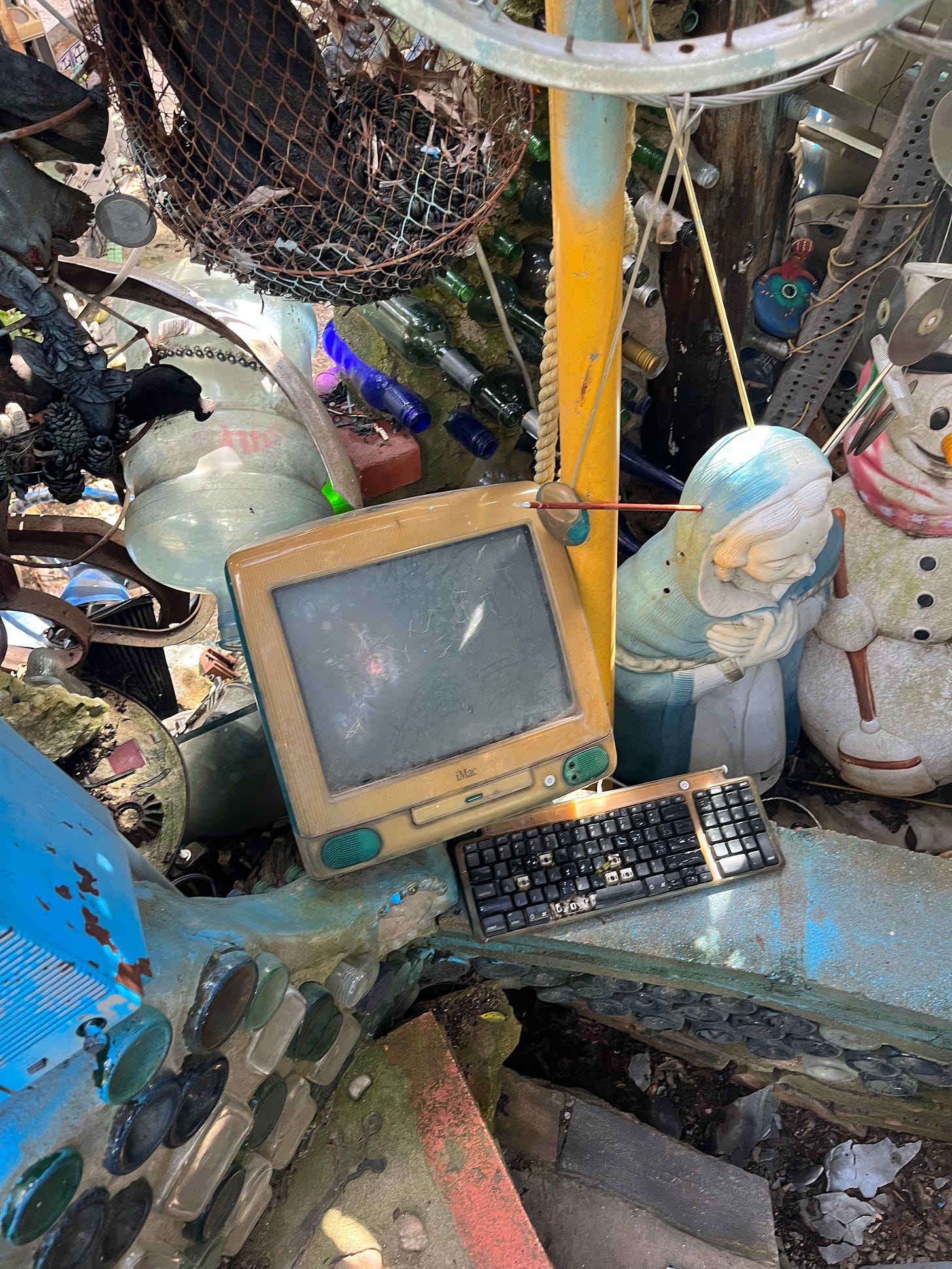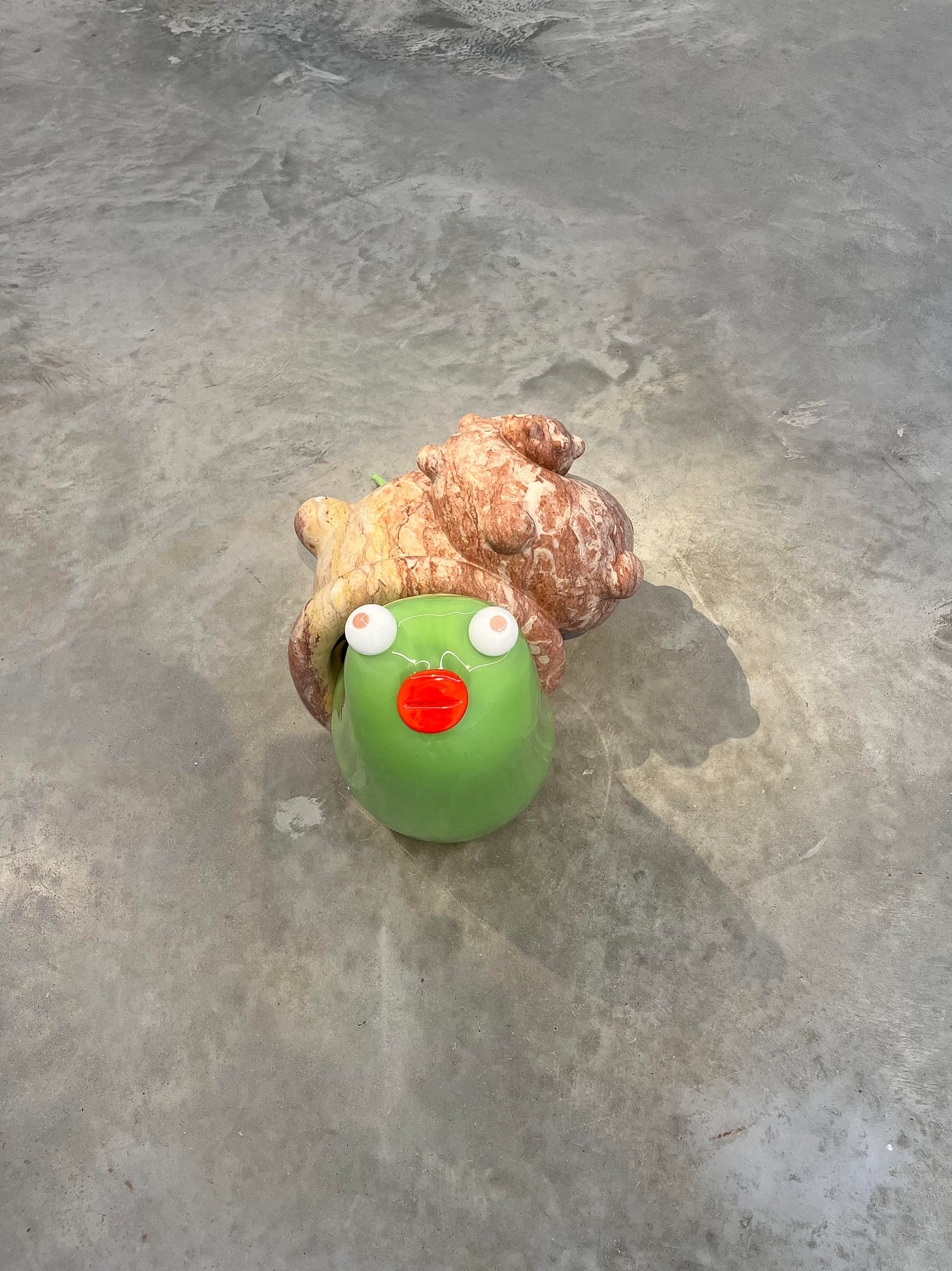I was rejected 200 times and all I learned was these 6 things
Hitting a kinda embarrassing milestone
This post is free. If you enjoy it, please tap like or share with a friend.
I recently realized I’ve queried my novels nearly 200 times and still don’t have an agent. Oof.
At least I learned a lot from the process?
Sure, if six things is a lot. Here they are so you can live vicariously through my failure.
Congrats you wrote a novel now try to forget it exists
When I finished my first novel, I was so excited. I’d written a novel! It had a cool title (IMO), and the query language I came up with felt snappy and spiffy (to me). While writing the novel, I’d fallen in love with the characters and laughed at their (my) jokes.
I should have known. In hindsight, laughing at your own jokes seems like a telltale sign that you’re a little too close to the material.
I started querying the novel right away. I sent it out to almost 50 agents. I got one request for sample pages, and that was it.
Eventually I put the project aside, which is what I should have done right away. Never email angry and never submit/query excited. Drawer the project, let it mellow, then come back and revisit with fresh eyes.
I’ve done this since that ecstatic query bender and realized that there’s a lot of good stuff in my first novel—even some jokes that I still laugh at—but there’s also a lot that needs more revision.
Expert opinions are still just opinions
Before I wrote my first novel, I wrote a novel in stories. A friend referred me to an editor who’d worked with some big writers, and I hired her to read a couple of my stories.
She noticed a through line in all of them and asked if I’d considered linking the stories. I saw she was onto something, worked for a few months to produce a draft, and then we edited it together until she deemed it ready to submit. She even said I should query an agent she knew and drop her name.
I did that and got radio silence. I guess sometimes even gatekeepers don’t know how to get past the gate.
Not that I regret working with the editor. Her critiques helped me immensely with that project, and I took those learnings to subsequent ones. Prior to working with her, I was mostly just pecking little vignettes and stories into my phone on the bus to work. After working with her, I had my first long form project.
Chew slowly
I’m a fast eater. It’s disgusting. I’ve heard health experts say you should chew your food thoroughly, to a slurry, for better digestion, but I can’t do that, I’m sorry.
I’m just too impatient. I’ve heard publishing experts say you should query in batches, say half a dozen agents at a time. This way you can send out a couple queries, see the response (radio silence, a few requests for pages, zero manuscript requests, etc.), and gauge whether there might be an issue with the query language, with the opening pages, or with the full manuscript. Then you can make changes based on that before sending out more. This is really good advice, and I hope some day to take it.
Please excuse me while I face plant into a bowl of something.
Sometimes it’s personal, in a not bad way
A year-ish ago, I signed up for one of those conferences where you can pay extra to meet for five minutes with an agent or an editor. I got time with one agent at a big firm and one editor at an indie press. I pitched them both my second novel, written by an older wiser me who had drawered and revised it something like ten times.
The agent had never heard of one of my comps1. (Before you ask me if it was something obscure, it was not, it got a positive review in NYT and a starred review from Kirkus, and also my friend SARAH really liked it.)
The editor told me he could see his press publishing it. (Before you ask me, woah, where’s the book deal, he encouraged me to query it the traditional way first because that would mean a better deal, so that’s what I’ve been doing.)
My point is that not all rejections are about the project’s merits. Sometimes a project just isn’t the right fit for a particular person.
I’ve gotten a decent number of rejections along the lines of I like the premise/sense of humor/language, but I’m afraid I’m not the right agent for it. These are kind of like the publishing version of “it’s not you, it’s me,” except that they’re not total BS. If an agent takes the time to send a personalized response, that’s an encouraging sign. I guess that’s why I’ve kept querying.
So you beat on, boat against the current
Some say it’s not bad that I’ve pressed on. When I told a published novelist about my big booboo of 200ish queries, her advice was actually, shockingly to keep querying? She said it was a good sign that I’d gotten a couple requests to read the full manuscript, even if all but one of them had ended up passing (that one is still out…fingers crossed).
The novelist said she knew a lot of writers who were having this experience. It was the current market. Huh!
It’s true that there are many, many factors besides quality that come to bear on a submission. (Though that’s a big one, and the only one in your control, so don’t be like me and query manically).
Just for starters, there’s the sheer number of queries an agent receives and what they can take on in a year (this post was eye-opening to me). They may have an existing client who’s working on a project similar to yours, or maybe they tried and failed to sell something similar a year ago. Then there are industry trends that I won’t attempt to speak to because I am not a publishing insider (obviously).
This is kind of like the publishing version of “gotta kiss a lot of frogs to find your prince,” except replace “kiss” with “email.”
Rejections might be cool?
When I realized I’d queried this many times (125ish on my second novel, 50ish on my first, ten or so on my novel in stories), I felt pretty embarrassed.
Especially over the 125 on novel two. I thought I’d learned my lesson from novel one, but I guess I got a little excited again. Or maybe I just entered some kind of fugue state fueled by postpartum hormones and sleeplessness.
But some say rejections are good. They mean you tried, and it’s cool to try.
This sounds a little like some weakass participation trophy sh**, especially to a younger college-aged me who was certain that being cool was a matter of being too cool to care. Not trying too hard.
Well, college-aged me never wrote a novel. She wrote a novella for her creative writing program—fueled only by Adderall and Extra Polar Ice (it was a rough couple years, college, particularly the Polar Ice)—then never looked at it again.
I guess you could say she drawered it, but not because she was smart. Because she was scared.
Welp, I’m feeling weird for referring to myself in the third person and don’t know how to tie this up, so I’ll leave you with a recently discovered David Bowie quote:
“If you feel safe in the area you’re working in, you’re not working in the right area. Always go a little further into the water than you feel you’re capable of being in. Go a little bit out of your depth. And when you don’t feel that your feet are quite touching the bottom, you’re just about in the right place to do something exciting.”
Maybe I’ll start signing off my queries with this quote. You know, to entice agents into taking a chance on an unknown like me. Hopefully I’ll try my own advice and only test this on a batch of half a dozen.
Sorry for the jargon. A “comp” is a published book you compare your manuscript to in a typical query letter. To help the agent better understand the vibes/audience/market you imagine for your book.







I super appreciate this and think it’s all great advice! I can’t tell you HOW MANY “good premise but not for me” and “I’m afraid I’m going to step aside” emails I got from agents before I found my lovely agent Jacqui Lipton at TLA (Tobias Literary Agency)….. and then, after we went out on submission with the book, how many “this was interesting but I just wasn’t SWEPT AWAY ENOUGH” emails we got from editors before finding a press. It’s a very tough market, and the process, in a word, sucks. Keeping at it is heroic!